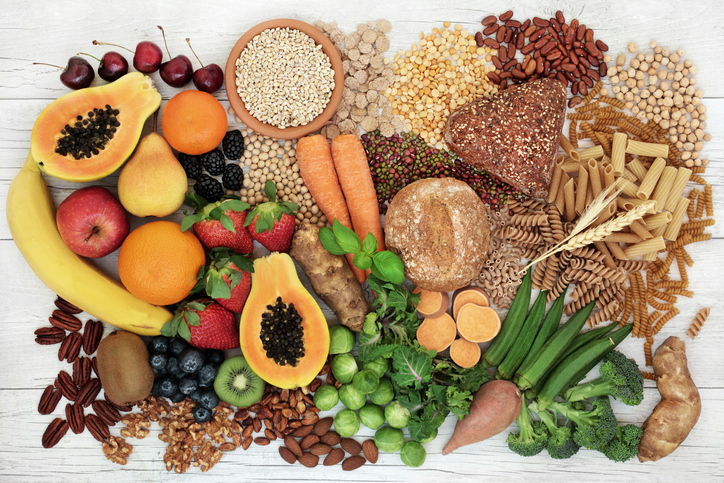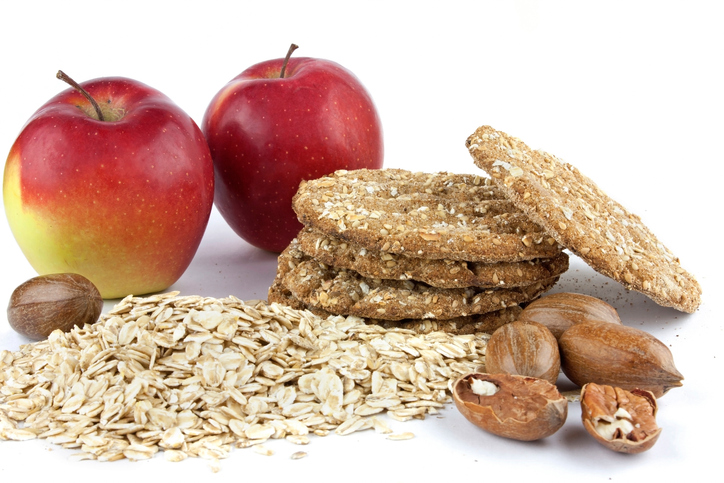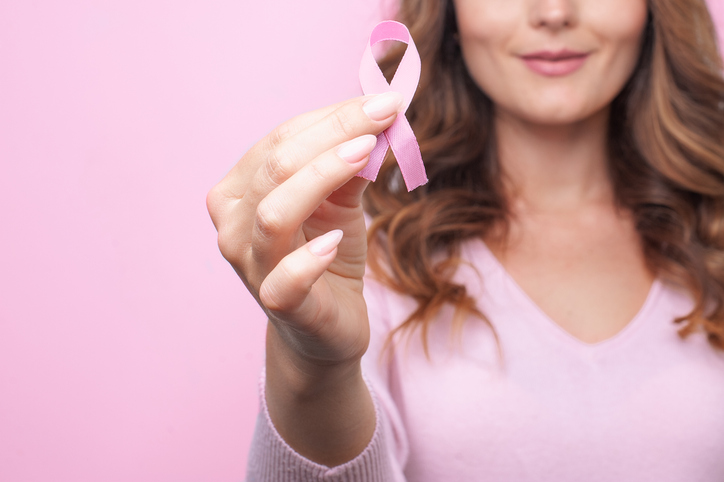Whether a woman gets it from beans, fruits, vegetables, or grains – dietary fiber has been found to lower a woman’s risk for breast cancer, studies have found.
Research
A comprehensive study published by Maryam Farvid and a team from Harvard T.H. Chan School of Public Health in Boston studied data from 20 different trials involving millions of women. It revealed that high total fiber consumption can lower the risk of breast cancer by 8%, compared to low consumption of fiber. The study was published by the American Cancer Society in the journal Cancer.
The researchers compared fiber consumption and types of fiber intake, and their link to breast cancer incidence rates in 17 cohort trials, one clinical trial, and two nested case trials. Results have shown that those who consumed the most fiber tend to have an 8% reduced risk of cancer.
The team found that American women usually get 45% of their dietary fiber from cereals and whole grains. Veggies are the source of around 23% of fiber, and the rest are divided between beans, nuts, seeds, and fruits. However, the study found that it doesn’t matter where the dietary fiber came from.
The researchers also found that only soluble fiber, the kind that can be found in foods like nuts, cereals, fruits, veggies, oatmeal, beans, lentils, and peas, had a statistically significant association with reduced breast cancer incidence. Insoluble fiber is also found to reduce the risk but the effect wasn’t statistically significant.
The studies involved prospective trials, where a trial is set up and results are tabulated as time goes by. Prospective studies are known to have more validity and accuracy in results than retrospective studies that ask women what they ate in the past.
Findings of the research
Besides the overall reduction in the risk of cancer, the review also found that the anti-cancer benefits of fiber can be applied to women of all ages. Postmenopausal and pre-menopausal women can also experience a significantly decreased risk of developing breast cancer by getting a high intake of fiber.
Most of the studies were concerning postmenopausal breast cancer, but five reports examined premenopausal cancer, the effect of fiber was more significant: an 18 percent reduced risk for women who consumed the most.
There are several possible mechanisms why taking more fiber reduces the risk of breast cancer, which include increased levels of sex hormone-binding globulin, improved insulin sensitivity and blood glucose control, and improved intestinal microbiota.
A high fiber diet is also associated with an increased intake of vitamins, minerals, and phytochemicals that can protect the body and help fight against cancer.
The bottom line of the Research
So, to help prevent your body from developing cancers, try to consume all sources of fiber. Even if it’s only a modest risk reduction, adding different types of fiber to your diet offers many other health benefits to the body. The American Cancer Society’s recommended dietary guideline suggests higher consumption of whole grain, fruits, vegetables, and other high fiber food choices to prevent the development of cancer.
How Fiber Affects Breast Cancer

Fiber-rich foods are found to contain compounds that can influence breast cancer growth and development. Here are some explanations as to how fiber influences breast cancer:
1. Fiber increases the frequency of bowel movements,
An increase in the frequency of bowel movement helps reduce breast cancer risk by increasing estrogen excretion. Circulating estrogen levels are a risk factor for breast cancer.
2. High-fiber diets reduce the circulating C-reactive protein
This particular protein is an indicator of inflammation. Inflammation increases the risk of many diseases, including cancers.
3. Fiber intake reduces weight gain.
Being overweight and postmenopausal increases the risk of breast cancer for women.
4. High fiber intake decreases serum cholesterol levels.
Some pieces of evidence suggest that high cholesterol promotes breast cancer. Additionally, low cholesterol levels are also better overall since the chances of cardiovascular diseases are also reduced.
5. Increased fiber intake improves blood sugar levels
Soluble fiber in particular has the ability to improve blood sugar control and reduce excess insulin in persons with type 2 diabetes. Excess insulin in the blood, also known as hyperinsulinemia, increases the risk of breast cancer and recurrence.
Natural Sources of Fiber

A healthy, fiber-rich diet is essential for the body, and having a decreased risk of developing breast cancer is just the cherry on top. The following foods are excellent sources of soluble and insoluble fiber that is associated with reduced risk of breast cancer:
- Apples
- Oats
- Broccoli
- Buckwheat
- Dry beans
- Brussel sprouts
- Kale
- Turnips
- Seaweed
- Bell peppers
- Carrots
- Blueberries
- Blackberries
- Raspberries
- Flaxseed
- Brown rice
- Tomatoes
- Walnuts
- Zucchini
FAQ- Fiber Fights Breast Cancer
1. What kind of cancer can fiber protect us from?
Fiber is an extremely important part of our diet as it has many health benefits.
Among the many benefits, arguably the most important one is that it helps protect you from a variety of cancers. Many researchers have shown that eating high-fiber foods helps in protecting oneself from cancer.
Evidence suggests that fiber is preventative against cancers like colon cancer, breast cancer, ovarian cancer, gastrointestinal cancer, and even endometrial cancer.
Hence, we should always ensure that we have sufficient fiber in our diet if we want to save ourselves from various kinds of cancer. It is suggested that adults should consume around 21 to 25 grams of fiber per day.
2. How does fiber work to protect us against cancer?
Fiber is well known for protecting us against various different kinds of cancer. Research suggests that because fiber works mainly in the colon, it is the most effective against colon cancer.
If one consumes enough fiber, our digestive system works rapidly, and the nutrients pass through very quickly through the colon. Because the excrements don’t stop in the colon for long, cancer-causing compounds are flushed out of the body very quickly. This prevents them from latching onto our bodies. Hence, it flushes out the cancer-causing compounds out.
It is also possible that fiber may change these compounds and alter them to not be as harmful. However, research on this is still ongoing.
3. What steps can be taken to reduce breast cancer?
Breast cancer is a disease that involves the uncontrolled growth of cells in the breasts. It is one of the most common kinds of cancer and affects people worldwide. It is estimated that 1 in 8 women are affected by cancer throughout their lifetime.
Hence, preventative measures should be taken to reduce the chances of getting breast cancer. We suggest the following preventative measures:
- Maintaining a healthy weight
- Being physically active
- Limiting postmenopausal hormone therapy
- Having regular checkups
- Introducing fiber-rich foods into your diet
- Following a healthy diet
4. Are fruits high in fiber?
Yes. Fruits are great sources of fiber as their fiber content is quite high. Many dieticians suggest that if one wants to increase the fiber content of their diet, they should introduce fruits into their diet.
Most fresh fruits are high in fiber and especially their skins and seeds contain a hefty amount of fiber.
Some fruits which have a high amount of fiber include bananas, apples, oranges, and strawberries. These fruits have a total of 3 to 4 grams of fiber per cup.
If you want fruits that are even more effective, look into raspberries. These berries have a whopping 8 grams of fiber per cup.
Other fruits such as mango, guava, and permission also have a high amount of fiber in them.
Apart from fruits, vegetables are also a great source of fiber and must be an essential part of your diet if you want all the benefits of fiber including cancer prevention and lowered cholesterol and blood pressure levels.
Conclusion
Among the many cancers in the world, breast cancer is the most prevalent one. According to statistics, one in every 8 women suffers from cancer each year. Because of how widespread it is, research into breast cancer is underway in many places around the world.
One research in particular done by Maryam Farvid and a team from Harvard T.H showed how high fiber diets effectively lower the risk of breast cancer. This article lists all the details you need to know about this breakthrough research and the importance of fiber in our lives.

